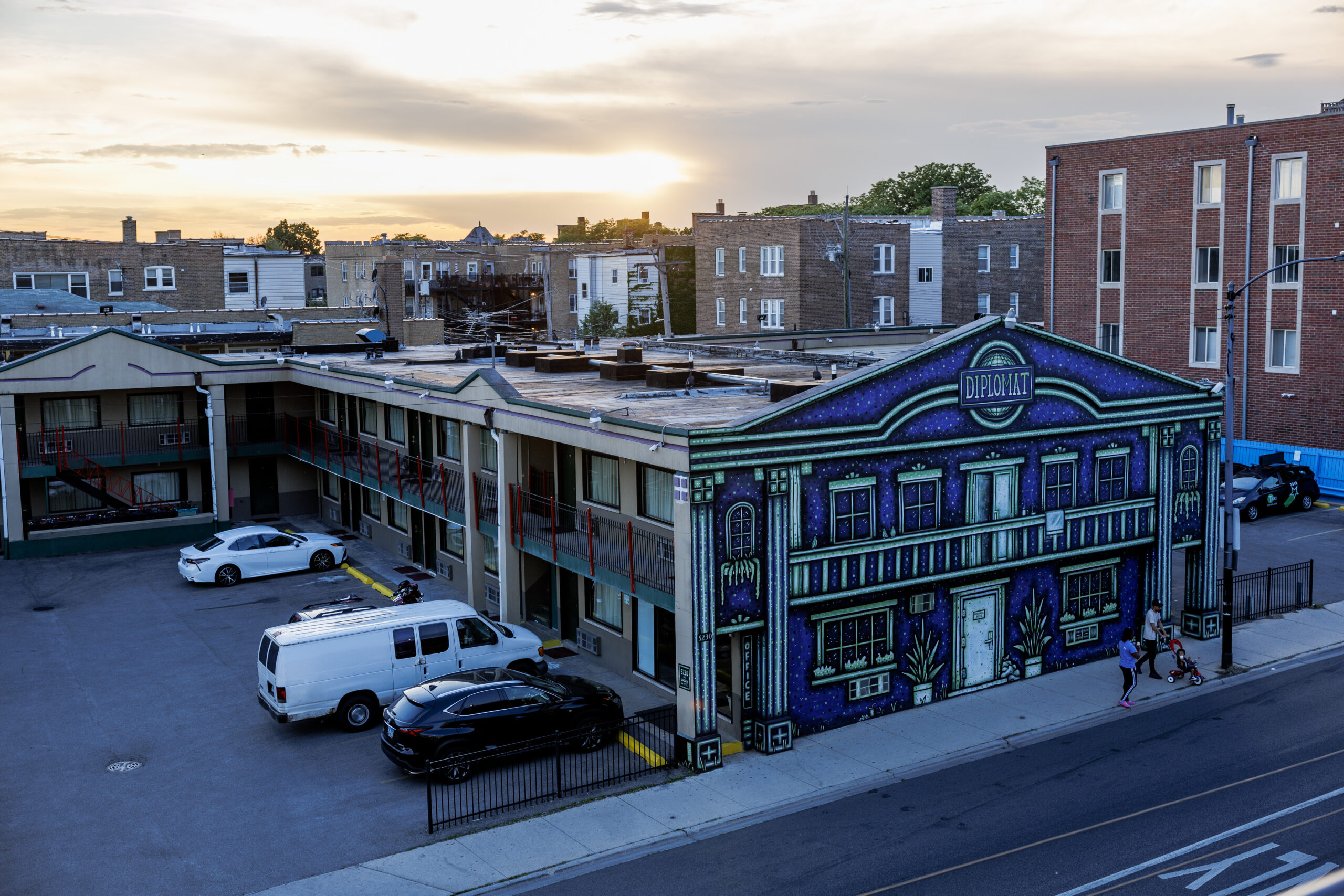Chicago’s summers are notoriously hot, but this July the Windy City had some pretty cool news. In an effort to reduce homelessness, the Chicago City Council’s Housing and Real Estate Committee unanimously endorsed a plan to spend $2.9 million converting Lincoln Square’s Diplomat Motel into not just a homeless shelter, but a one-stop shop of care designed to get individuals experiencing homelessness back on their feet.
Alderman Andre Vasquez of the 40th Ward is the author of the proposal, which piggybacks off a pandemic-error push to reduce COVID among the homeless population. Unsurprisingly, those individuals who found shelter in those motels during the pandemic found a significant improvement in their overall health. Their blood pressure lowered, blood sugar stabilized, and with a secure place to call home for three months, they had the freedom to pursue jobs and permanent housing.
The goal had been to reduce the spread of disease, but the program wound up illustrating the value of stable shelter for those experiencing homelessness. As Vasquez says, the motel will offer the “dignity of their own units and the dignity of their own support system.”
Vasquez’s idea is an ambitious one, with the hope that the new version of the Diplomat Motel will serve as a model that can be duplicated throughout the city. It is estimated that once the Diplomat Motel is up and running, it will cost $3 to $4 million annually to operate. This is significantly less than the cost of police response and ER visits for the same population left unhoused.
There are 66,000 unhoused individuals in Chicago and 12 shelters designed to accommodate 3,000 people each—but are currently housing 5,000. Over the last year, the city has seen an influx of 11,000 people from Central and South America, putting an even greater strain on the shelter system.
The Diplomat Motel only has 46 rooms, which will be converted to 40 to provide space for the needed in-house services, including caseworkers, mental health professionals, and medical care. The goal is to set the residents up for not just immediate success, but a return to long term stability, which will benefit not only those individuals but the entire community.
(Source: WTTW, Chicago’s PBS station)

